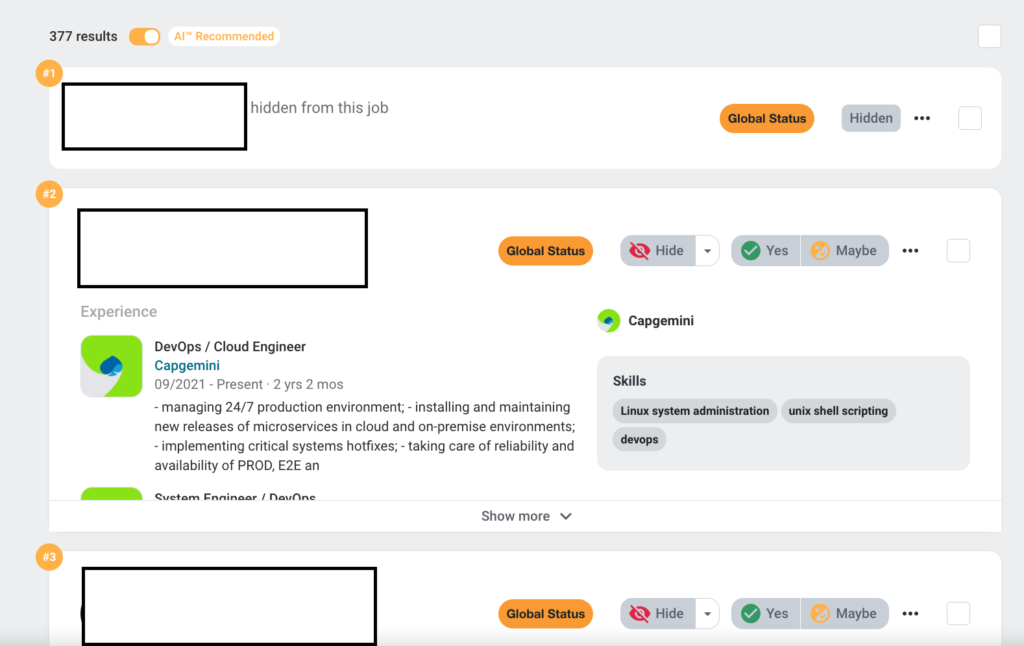
Reference checking - how to do it effectively?
How to effectively check references of candidates from a previous job: a guide for recruitment experts
Nowadays, the process of recruiting the best candidates is complex and increasingly demanding. As an experienced executive search expert, I would like to share my knowledge on a key step in the recruitment process, which is checking the references of candidates. This article discusses how to effectively conduct reference checking to select the best candidate for your organization, ensuring that the hiring decision is based on solid and reliable information.
Reference checking: Understanding the process
Reference checking is not just a formality, but a key part of the recruitment process. It allows you to gain a deeper understanding of a candidate's competence, skills and behavior. It is also an opportunity to confirm the information provided by the candidate in his or her resume and during the interview, which is essential for an accurate assessment of his or her suitability for the position.
Preparing to check references.
Prepare a set of questions focused on the candidate's skills, accomplishments and behavior, tailored to the specifics of the position. It is important that the questions are open-ended and allow for detailed answers to provide a more complete understanding of the candidate. Preparing and planning these questions in advance will ensure that the interview is smooth and focused on the most important aspects.
Selecting the right person to vet the candidate
Choose references from people who have had direct professional contact with the candidate, such as superiors, colleagues or clients. Ideally, references should come from different levels of the hierarchy and different projects, which gives a broader picture of the candidate's competence and behavior. Make sure references are current and relate to the candidate's recent work experience.
Techniques
Remain professional and open during interviews, listen carefully and read between the lines. It is important to create an atmosphere of trust, which will encourage references to share information honestly. Remember to ask questions in a way that elicits specific examples and situations in which the candidate has demonstrated the competencies you are looking for.
Analysis
Carefully analyze the information, paying attention to the consistency of information received from different sources. Look for patterns in the responses that may indicate the candidate's strengths and areas for development. Be aware of any inconsistencies or subtle signals conveyed that may require further clarification.
Legal aspects
Reference checking must comply with applicable laws, including RODO. Get the candidate's consent, communicate the purpose and scope of information collection, limit access to data, store data securely, and respect the candidate's rights to rectification and deletion. Remember to be transparent and document all activities, which is crucial in case of potential legal disputes.
Relationship building
Build a relationship with the candidate and their references by presenting a professional approach. This shows your commitment to the recruitment process and builds a positive image of your company. A good relationship can also benefit you in the future, for example, by recommending other valuable candidates.

Diversity and inclusiveness
Conduct the process in a way that promotes diversity and inclusiveness, avoiding bias and prejudice. Approach each candidate with an open mind, evaluating them solely on their skills and experience. Remember that a diverse work environment contributes to an organization's innovation and success.
Use of technology
Consider using specialized software to organize and analyze data. Technology can help you manage the process effectively, ensuring that all information is stored in a secure and organized manner. Automating some aspects of the process can also save time and increase efficiency.
Effective reference checking requires diligence, professionalism and objectivity. It's not just collecting information, but being able to analyze it and use it in the decision-making process. This approach allows you not only to verify a candidate's competence, but also to better understand his personality and working style.
Sample questions for our interviewee:
1. general questions: how long have you worked together? What were the candidate's main responsibilities?
2 Competencies and skills: What skills has the candidate demonstrated? Did he or she show initiative?
3. work style and behavior: how did he handle stressful situations? How do you assess his communication skills?
4 Achievements and contributions: Example of a project with the candidate's key contribution? Major achievements?
5 Weaknesses and development:Areas for development? Response to constructive criticism?
6 Concluding questions: Would you hire this candidate again? What else should we know?
Remember that effective reference checking increases the chances of finding the perfect candidate who will make a positive impact on your organization. This is a process that requires attention, precision and accountability, but its value to recruitment success is invaluable.
Fast Forward Solutions - Your source for the best professionals
Fast Forward Solutions specializes in recruitment services in the areas of IT, finance, sales and marketing. Our rigorous methodology combines role profiling, executive search and candidate assessment, supported by consulting services. As a result, we guarantee efficiency and rapid acquisition of the best talent on the market. With our support, any company can increase sales, reduce operating costs, improve the efficiency of human resources management and strengthen investor confidence.
Make an appointment for a free consultation
Do you want to strengthen your team with exceptional specialists?
Take advantage of our free consultation and find out how we can help you with this challenge.
Schedule a 15-minute online meeting and start building your dream team with our help










Latest comments